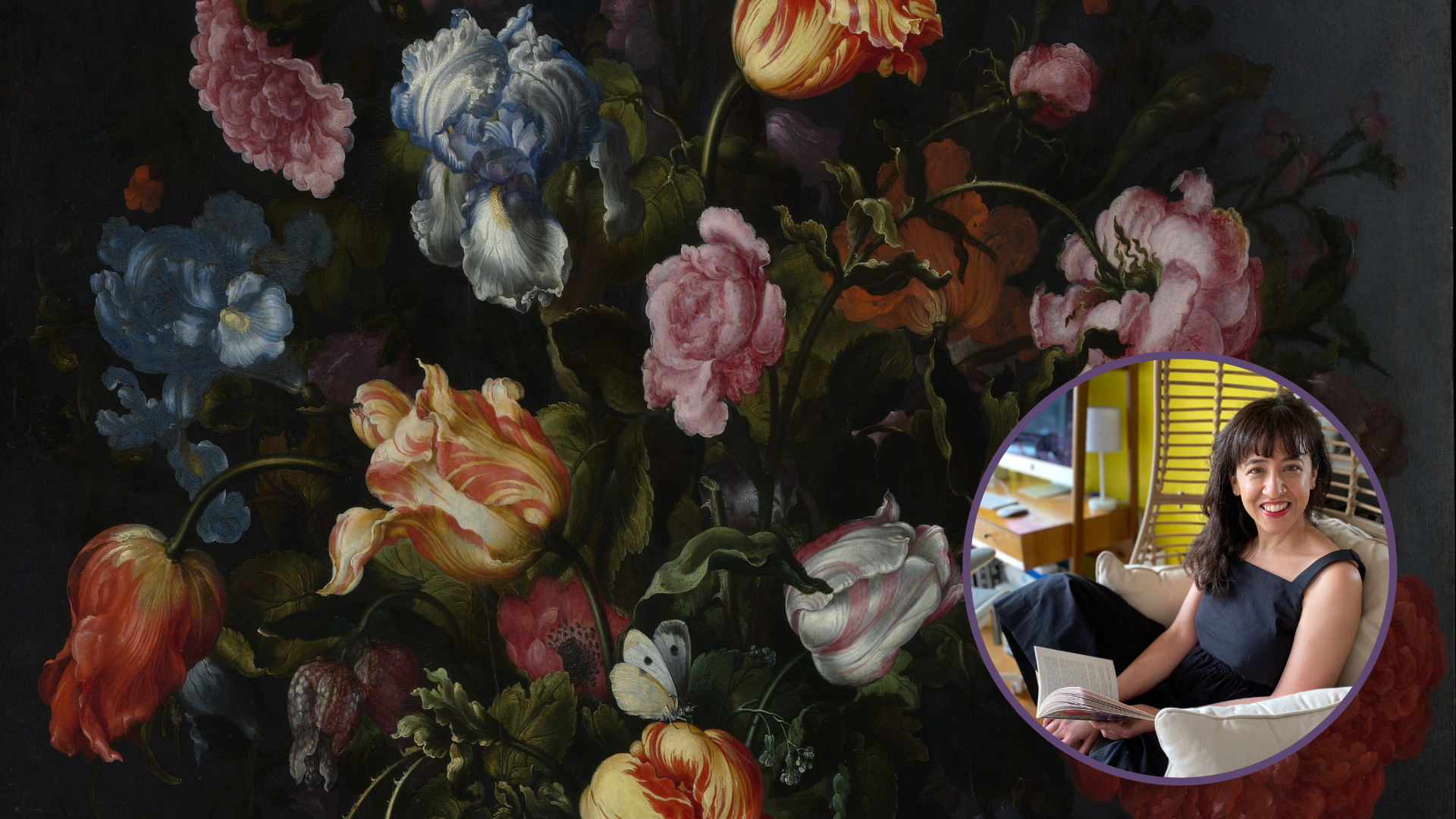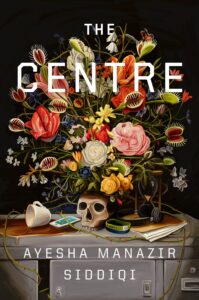
Ayesha Manazir Siddiqi has previously published short stories, reviews, translations, essays, monologues, and poetry. She has also worked as an editor and a playwright. Ayesha was contributing editor for the Serial Productions podcast The Trojan Horse Affair, and has been anthologized by Tilted Axis Press, Peepal Tree Press, Influx Press, EMC, and Oberon Books, and published in The Independent, Ceasefire, The Theatre Times, Wasafiri, and Media Diversified. Her plays and monologues have had rehearsed readings and stagings at venues including the Rich Mix, Theatre503, and the Tristan Bates Theatre in London, and the Impact Hub in Birmingham, and she's also written for BBC Radio 4. Ayesha is from Karachi and lives in London.
Ayesha shared more about the speculative thriller The Centre, summoning the courage and will to write a novel, and exploring love, loneliness, and the darker underside of language learning in her debut.
 In The Centre, Anisa Ellahi, a London-based Pakistani translator attends an elite, invite-only language school (The Centre) that guarantees complete fluency in any language in just ten days—but at a secret, shocking price. When did you know you wanted to write this book? What was the initial inspiration?
In The Centre, Anisa Ellahi, a London-based Pakistani translator attends an elite, invite-only language school (The Centre) that guarantees complete fluency in any language in just ten days—but at a secret, shocking price. When did you know you wanted to write this book? What was the initial inspiration?
I had the idea for the book many years ago but actually started writing it during the pandemic. I’m not sure I can track my initial inspiration, but I have always had an interest in languages and language learning. Besides English, I speak Urdu and French, and have attempted translations in both languages, so I relate to the protagonist’s dream of being a translator. At the same time, I am also interested in the underside of language learning, the ways it can involve co-option and appropriation. Also, like Anisa, the protagonist of the novel, I moved to England from Pakistan at eighteen, and in some ways, this book is also an examination of that kind of movement, of what it does to the psyche. The book explores race and gender, sexuality and class, love and loneliness, and notions of success and failure, all of which I am deeply interested in.
As the book follows Anisa’s seduction by the promises of The Centre and her growing enmeshment in the organization’s workings, it tackles the politics of language, translation, and appropriation. What was the most challenging part of writing this story? The most rewarding?
A novel is difficult to complete. There are many ingredients involved, and the one I have historically found most challenging is summoning the courage, will and determination to continue, and the confidence to believe that the book might turn out ok. I also had to extricate myself from the idea that the task was not doable, that only a certain kind of person could write a novel. The most rewarding aspects were the long periods of time when I was really into it, when I was completely absorbed in the story, flowing with it. I would go for walks, and it would be as if I were walking through the novel itself, page by page, chapter by chapter. And I guess this is the nature of the work: sometimes you’re painfully wrestling with the text, and other times it clicks, and that can be practically euphoric. It was also rewarding, of course, to receive the affirmation of my agent, when she told me she believed she could sell the thing, and then of the publishers who wanted to print it. And it’s been lovely to see my family so happy for me. My dad in particular tells everybody, like, he practically waves the book around in the supermarket when he goes to buy milk.
Was there any part of the book, as you wrote it, that surprised you?
Yes. There were some anxieties that I had to overcome in order to write about things that I worried might seem inappropriate to family members, for instance. And I was grateful that something in me felt allowed to go where the book led me, and in the end, it turned out to be fine. It seems, atleast in this case, that it is true what Rilke said about the love of a parent, when he advised, ‘Ask no advice of them and reckon with no understanding; but believe in a love which is stored up for you like an inheritance, and trust that in this love there is a strength and a benediction out of whose sphere you do not need to issue even if your journey is a long one.’
What do you hope readers will take away from The Centre?
I don’t want to presume or project anything on that front. I just hope readers connect with it in a meaningful way.
Was there anything you read, listened to, or watched while working on The Centre that influenced its creation?
Some of the influences appear in the book itself; there are references to Sara Ahmed, Adrienne Rich, Ocean Vuong and Virginia Woolf, and to the music of Florence and the Machine and Solange Knowles.
I was watching, at the time, the TV shows Russian Doll (season one), Midnight Gospel, and Maniac. I also enjoy the films of Sofia Coppola and Charlie Kaufman. I suspect some of this this may have been standard pandemic fare for many, that maybe that time triggered a taste for the psychedically dystopian, and this fed into the novel. Afterwards, I remember that during one stage of the editing, I started watching the films of Alfred Hitchcock and David Lynch, and I really enjoyed what I saw as their psychoanalytic approach to horror. During the final stages of editing, I was also reading Sheila Heti, Elif Batuman, and Elena Ferrante, all of whom I love, and I get the feeling these influences may also filter in into the next thing I write.
Do you ever find it difficult to be creative? What do you do when you are feeling blocked or uninspired?
Of course, I find it difficult to be creative very often. But there are different forms of creativity – the cooking of a nice meal, a stimulating conversation with a loved one, moving the furniture around in my flat, all of that feels like part of the process. It’s also very nourishing when I manage to carve out good chunks of free time for myself. This gives space for something to start brewing. Reading, discussion, and collaboration are inspiring too. At the same time, it is also a matter of being patient with yourself, and forgiving, and maybe there is a kind of surrender involved, to just let what wants to come out come out.
What are you currently reading? Are there any upcoming books that you are excited about?
I have just finished Yellowface by Rebecca F. Kuang and found it fascinating. Before that, I was re-reading I Love Dick by Chris Kraus because some publication asked me to list five books I loved, and I wanted to see if I’d like it as much as I did many years ago, and the truth is, it’s hitting differently this time but I can still see why I loved it. It’s funny how books can be mirrors like that, showing you your own internal changes over time. Today, I’m starting Arrangements in Blue. I hear good things and it feels very apt at the moment!


